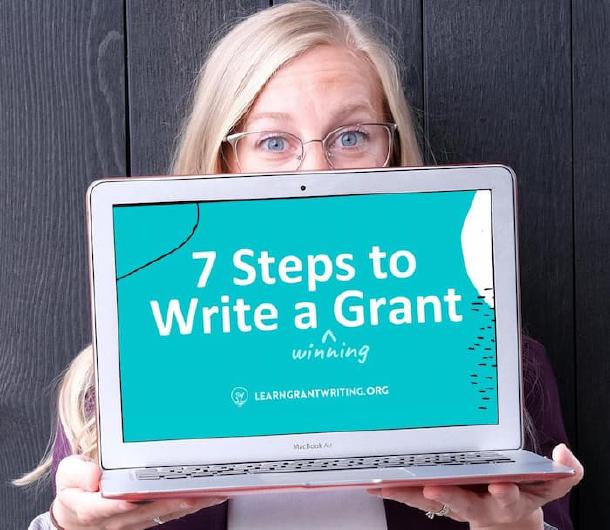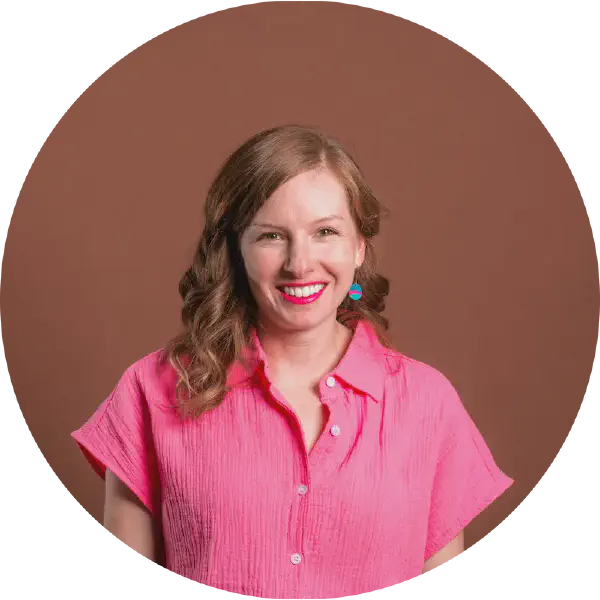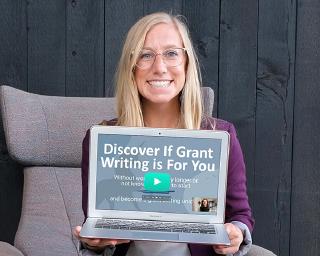"I just learned about {grant name}, but it is due in {insanely short time frame}. Should I go after it?"
Smalls, you're killing me! The answer is no. No, no, no. Still, no. Don't even try to convince yourself it's the perfect fit.
Now that we're done being sassy, let's explain the tricks your mind is going to play on you.
"But this is the PERFECT grant for us!”
If you are only learning about a grant once the announcement has come out, you are too late. You don't have the time to properly examine if it is a good fit. Your judgment is now blurry because you want the signs to say “go for it!”
Even if you follow the rule of contacting the funding agency to gauge if the program is a good fit, the funder can lead you astray. Once an announcement is out, many funders will encourage you to apply because it makes their programs look better if they are competitive. Another issue is that a funding agency representative often cannot talk to you about the application or your project once announcements are published.
Remember, this advice doesn't come out of nowhere. It is because we learned the lesson the hard way – a few times. Even when you know better, you can fall into the trap of thinking “this one grant is the exception to the rule, and I’m going to go for it!”
A little over a year ago, we dropped everything to help a local nonprofit pursue a national arts grant. It seemed like the perfect fit, and they desperately needed the funding. The application was pretty easy, so we agreed to prepare the application with just a few days notice.
You can probably guess what happened. The application was not successful. It also took forever to figure this out because, in hastily applying, we had misspelled the email for our main point of contact for the funding agency. 🤦
We later figured out that only 1-2% of applicants were successful. Generally, the rule of thumb is to not apply for grants with less than a 20% likelihood of success. If we'd taken the time to properly examine the grant program, we would have learned that fun fact on competitiveness and never applied.
“It’s a simple application and won’t take that long.”
Don’t be fooled into thinking a two-page application won’t take time. In fact, the shorter the application, the more your word choice matters, and that requires more editing time.
If you drop everything to spend a week preparing an application that has low odds of success, you literally just blew a full 40-60 hours of work on nothing. Even if it was “just a day” – that’s a day you aren’t getting back!
What if you put the same amount of time into developing the project further and putting together a proper funding strategy? A funding strategy should not take more than 10-25 hours to prepare. (A funding strategy is a road map for knowing what grants you will pursue ahead of time and when.)
Is Grant Writing For You?
If you are looking for a career change and interested in grant writing consulting, check out this training on how to get started. Build a flexible life you love!
Watch Video
“My boss insists I apply. I don’t have a choice.”
Okay, first of all, you do have a choice. A Boss never threatens you to write the grant or else. (And if that is the case, you are in an abusive work relationship and should find a new job!). Their demand is coming from wanting that grant resource and trusting you to get it done.
To counteract these demands, you must find your voice and paint your case with facts.
Calculate Likelihood of Success
You do this by dividing the total number of applicants by the number of awards made. You will do this for the previous year's program.
Many times, you can't figure out how many applicants applied. You will have to contact the funding agency and ask. This is an easy question to open up communication with the funding agency representative.
Target a ratio that is no less than 20%. If there are 100 applicants and 24 of those are funded, that means you have a 24% chance of getting funded. We're good with those odds. We may sometimes dip down into the 13-15% range, but must have strong reasons for doing so. (Here is a detailed blog post on how to calculate this and other simple math tricks).
Look into the Funding Agency’s History
Often, when you’re feeling pressured to hurry and apply, it is because someone is interpreting text on the project website as the “perfect fit.” The language used on a funder’s website does not always reflect their current giving priorities.
If you are applying for private foundation funding, you can access their giving history by reviewing their 990 forms filed with the Internal Revenue Service. These are gold mines of good information! Locate 990 forms for free through the Foundation Center or your Instrumentl subscription. (Visit this post for more information on Top 10 Grant Databases like Instrumentl).
If the funding program says it funds fighting obesity, saving the polar bears, and art and culture, let’s look at their 990 form to confirm this is true. Perhaps then you see that they actually only fund arts and culture projects, so don’t bother with your initiative to save the polar bears!
Check out our blog post on how to use the 990-finder to your benefit here.
Calculate the True Cost of Grant Preparation
Even simple applications have a cost for preparation. Take your hourly rate and add 20-30% for your benefits (like healthcare, retirement savings, insurance, etc.). Multiply that by the number of hours you would spend on this project. Do the same for anyone else involved. We often think our time is free, but it is not. It is good to be clear on what those costs are, so you use the precious resource of time wisely.
Especially think about this when asking important, well-paid people to meet. An hour of their time can easily exceed $1,000 in value.
Be confident with your intuition, even if you are a new grant writer. Early in my career, I went head to head with an engineer that wanted to pursue wastewater treatment funding for a community that had no chance of getting awarded. This community had the lowest service fees state-wide for providing wastewater services.
The project they were trying to get funded was frankly just a routine maintenance improvement. The City did not need a grant. They needed to raise their rates. The engineer fought me on this and said, “It earns us goodwill if we show the community we tried”.
I put my foot down and refused to prepare the application. I have done this countless times since then when it doesn’t make sense to apply.
Sometimes, a grant looks like a great fit, but once you get into the thick of it, you realize some fatal flaw. Don’t try to hide it. If you see it, the funder will too.
If you do not believe in your heart that you have a good chance at winning the grant, don’t waste your time! Grants are too much work to not focus exclusively on those providing the best chance of winning.
Free Grant Writing Class
Learn the 7-steps to write a winning grant application and amplify the impact you have on your community.
Access Free Class
Why This Matters
Crash preparation of grant applications is a recipe for burnout. Grant writing is a lot like the role that marketing coordinators have in professional consulting companies. The average burnout is three years, and it is because they are always on deadlines.
If you want to be in the game for the long run, you have to intentionally avoid burn out. Otherwise, you will never want to write another grant again.
In addition, you can tarnish your reputation if you always rush things and beg favors from people so that you can make a grant deadline. It is unprofessional to ask for last-minute letters of support or rush a resolution from your council or board of directors. We all need favors from time to time, but ask for them wisely.
There are exceptions to the rule, but you must take responsibility for choosing to apply. Have we ever dropped everything to apply for a grant with an impossibly close deadline? Yes.
I once prepared a U.S. Department of Energy grant in five days almost entirely by myself. Federal energy grants are really hard! The grant guidelines are always at least eighty pages long. They have a ton of required attachments and very specific requirements down to the font type.
I agreed to write the grant for a few reasons:
- I had worked with the project manager and trusted him to be responsive and helpful.
- I had worked with the applicant before, and they had an exceptional staff.
- The project was one of the last infrastructure upgrades to help the City convert their electricity production to biomass. By being able to reference these past successes, I could easily demonstrate the applicant’s capacity to deliver the project on schedule and on budget.
- A formal stakeholder group had driven development of the project for years. This gave me the confidence in their strong working relationships to help with last minute requests like getting letters of support.
The grant was successful! I was thrilled with the outcome, but I accepted full responsibility at the beginning of the project taking it on. Nobody was forcing me to apply. I made the choice.
More often than not, I have been burned rushing a grant application without proper due diligence. Please let me spare you from making the same mistakes. Your success rate will be higher than average if you do nothing more than follow this rule alone: don't chase grants. Choose them wisely and intentionally.
Watch the Video
If you don't already, be sure to follow us on Instagram.
Be sure to check out our FREE online Grant Writing Class with Tips and Tricks for Narrative Writing here.
Serious about becoming a grant writer? Learn about our online grant writing training course.







